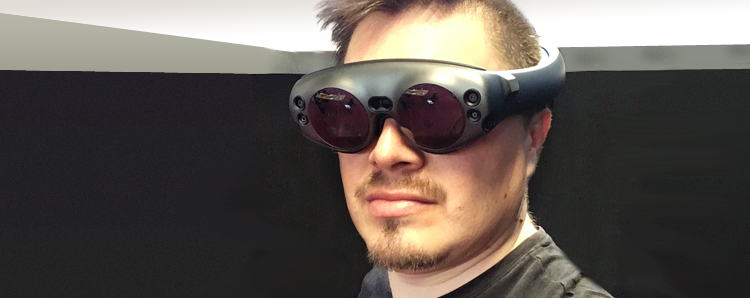Between the 11th until 15th of February I attended the Augmented Reality Summer School at the University of Auckland, in New Zealand. There, I had the opportunity to use the MagicLeap One, a sophisticated Optical See-Through Head-Mounted Display (OST-HMD) device.
I have an interest in investigating methods to evaluate visualizations displayed in immersive environments, and therefore, learning about the features included in the MagicLeap represented a great opportunity. Indeed, the MagicLeap has a field of view of 40 degrees wide by 30 degrees high and provides a resolution of 1280 by 960 per eye. It comes with a 6 DOF controller, and can recognize 9 hand gestures with a high precision (all fingers 3 joints each). On top of this features, the device also has eye tracking and two planes of focus.

The workshop was organized by Mark Billinghurst from the University of South Australia and University of Auckland. The workshop covered several topics. It started with an overview of AR technology (in particular HMD AR). Then we also learned about rapid prototyping and design methods. We had the chance to develop prototypes in hands on sessions. There were also talks about user experience design, and the use of physiological sensors such as the Empatica bands, and the Shimmer and Muse devices. I especially liked the talk by Gun Lee on evaluating AR experiences, which elaborated on evaluation methods that can be used at various stages of development until there is a final product. During the week I also had the opportunity to attend to a talk by Aaron Quigley on “Discrete Computing”.
The workshop also allowed me to meet many researchers from Denmark, Malaysia, UK, Australia, and of course New Zealand. Although researchers had multiple backgrounds such Computer Science, Arts, Design, Engineering, all of them had an interest in augmented reality.
All in all, I enjoyed the trip and came back home very inspired to continue with my research. Thanks a lot to the Transregional Collaborative Research Center (SFR-TRR) 161 for the support and the funding.

